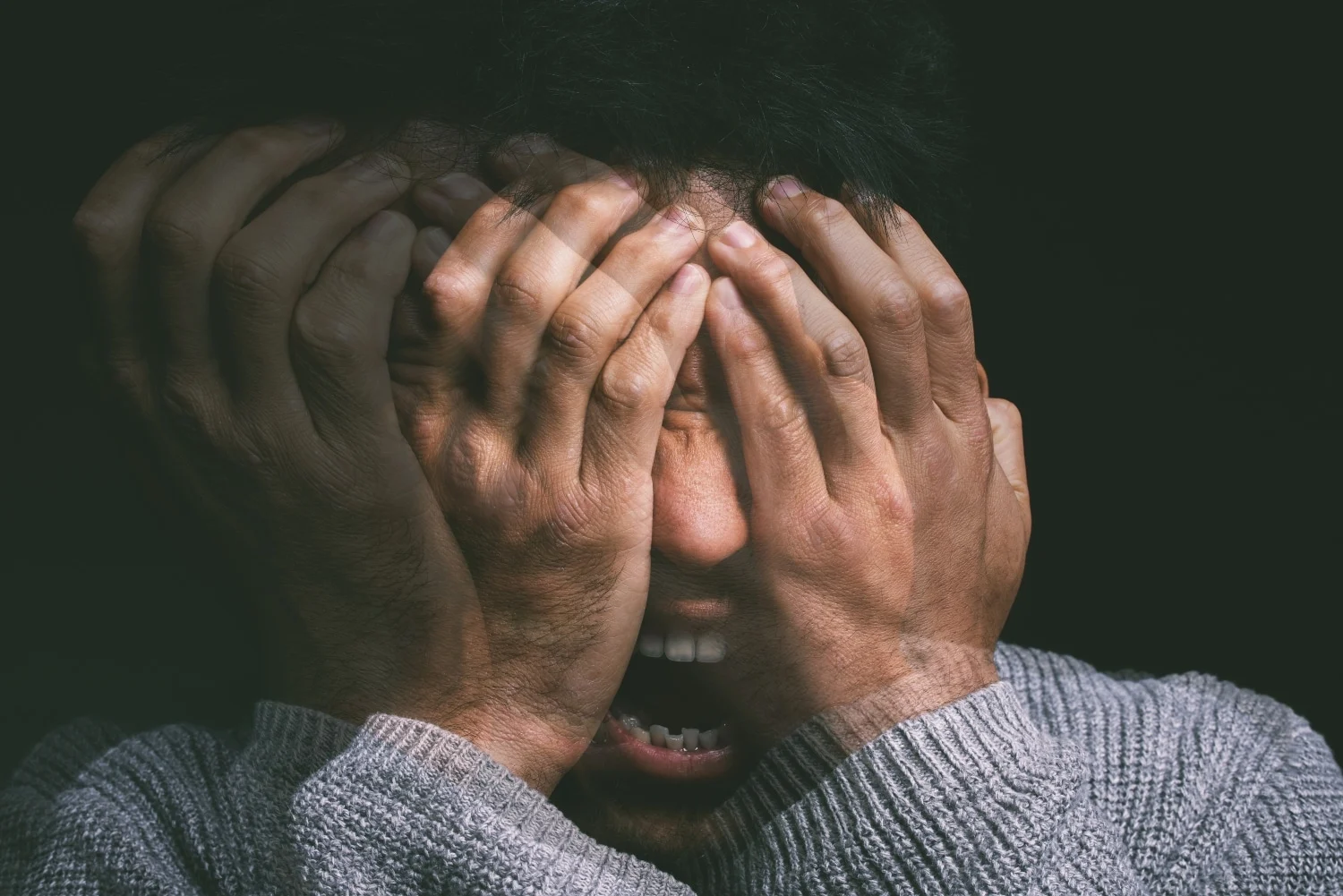What Is Psychosis?
Psychosis is a mental health condition characterized by a disconnection from reality. When someone experiences psychosis they may have difficulty distinguishing what is real from what is not. This can involve hallucinations (seeing or hearing things that aren’t there), delusions (false beliefs), and disorganized thinking.
Contrary to common misconceptions, psychosis is not a standalone mental illness—it is a symptom that can occur as part of various psychiatric disorders, including schizophrenia, bipolar disorder, severe depression, and substance-induced disorders. Understanding psychosis is the first step toward recognizing it early and seeking help.
Common Signs and Symptoms of Psychosis
Recognizing the signs of psychosis can help individuals and their loved ones seek help early and begin a path toward recovery.
Hallucinations
One of the hallmark symptoms of psychosis is hallucinations. These can affect any of the senses, but auditory hallucinations (hearing voices) are the most common. People may hear voices that others do not, and these voices can be distressing, commanding, or confusing.
Delusions
Delusions are firmly held beliefs that are not based in reality. For example, someone experiencing psychosis might believe that they are being followed, that they have special powers, or that external forces are controlling their thoughts.
Disorganized Thinking and Speech
People with psychosis may have trouble organizing their thoughts. This can result in speech that is hard to follow or doesn’t make logical sense. Their conversation might jump from one topic to another with no clear connection.
Behavioral Changes
Social withdrawal, decreased motivation, neglect of personal hygiene, and unusual or erratic behavior can all signal the onset of psychosis. These changes are often first noticed by close friends or family members.
What Causes Psychosis?
There is no single cause of psychosis. It often results from a complex interaction of genetic, biological, environmental, and psychological factors.
Mental Health Conditions
Psychosis is a central feature of schizophrenia and can also occur in bipolar disorder (especially during manic episodes), severe depression with psychotic features, and schizoaffective disorder.
Substance Use
The use of drugs such as cannabis, LSD, methamphetamine, or alcohol—especially in large quantities—can trigger psychosis, either during use or withdrawal. This is known as substance-induced psychosis.
Medical Conditions
Certain neurological and medical conditions, including brain tumors, epilepsy, or infections of the brain, can lead to psychosis. It’s essential to rule out medical causes through appropriate testing.
Trauma and Stress
Intense psychological stress, especially related to trauma or major life changes, can contribute to the onset of psychosis. Individuals with a history of trauma may be more vulnerable to developing psychosis, particularly if they have a genetic predisposition.
Genetics
A family history of psychosis increases the likelihood of experiencing it. While genetics alone don’t cause psychosis, they can increase susceptibility when combined with other risk factors.
How Is Psychosis Diagnosed?
Diagnosing psychosis involves a comprehensive evaluation by a mental health professional. Because psychosis can be a symptom of various conditions, it is critical to determine the underlying cause.
Clinical Interviews and Psychological Testing
A thorough interview allows clinicians to understand symptoms, history, and potential triggers. Standardized psychological tests may also be used to assess cognitive function and symptom severity.
Medical Examinations
Blood tests, brain imaging (like MRI or CT scans), and other diagnostic tools help rule out physical causes of psychosis, such as neurological conditions or substance use.
Treatment Options for Psychosis
Effective treatment for psychosis can significantly improve outcomes and help individuals lead fulfilling lives. Early intervention is key.
Medication
Antipsychotic medications are often the first line of treatment for psychosis. These medications help reduce or eliminate hallucinations, delusions, and disorganized thinking.
Modern antipsychotics have fewer side effects and can be tailored to individual needs. Adherence to medication is crucial in managing long-term symptoms of psychosis.
Psychotherapy
Psychological therapies are essential components of a comprehensive psychosis treatment plan. Cognitive Behavioral Therapy (CBT) is especially effective in helping individuals challenge and reframe delusional beliefs.
Therapists work with clients to develop coping strategies, improve functioning, and address co-occurring issues like anxiety or depression often associated with psychosis.
Family Therapy and Education
Family support plays a vital role in the recovery process. Family therapy helps relatives understand psychosis, learn how to provide support, and manage their own stress.
Education also reduces stigma and empowers families to be active participants in their loved one’s treatment plan.
Hospitalization
In acute cases of psychosis, hospitalization may be necessary for safety and stabilization. This allows for intensive monitoring, medication adjustment, and crisis management.
Ongoing Support and Rehabilitation
Recovery from psychosis doesn’t end with symptom reduction. Vocational training, peer support groups, and rehabilitation services help individuals reintegrate into society and thrive.
Programs that focus on social skills, job readiness, and independent living are especially beneficial for long-term recovery from psychosis.
Living with Psychosis: Stories of Hope and Recovery
Many people who have experienced psychosis go on to lead productive and meaningful lives. With the right treatment and support system, recovery is not only possible—it’s common.
Early intervention programs show that when psychosis is addressed quickly, individuals experience shorter hospital stays, better symptom management, and stronger social connections. Peer support networks also allow individuals to share experiences and foster resilience.
At Reflective Minds Mental Wellness, we believe in a holistic and compassionate approach to treating psychosis, focusing on the whole person—not just the symptoms.
Breaking the Stigma Around Psychosis
Unfortunately, psychosis is one of the most misunderstood aspects of mental health. Misrepresentations in media often contribute to fear and misinformation.
Challenging Misconceptions
Many believe that people with psychosis are violent or dangerous. In reality, they are more likely to be victims of violence than perpetrators. Educating the public about what psychosis really entails is critical for reducing stigma and promoting empathy.
Promoting Mental Health Awareness
Raising awareness through community outreach, school programs, and open conversations can create a more supportive environment for those living with psychosis. Encouraging early help-seeking behavior leads to better outcomes and reduces long-term suffering.
When to Seek Help for Psychosis
If you or someone you know is showing signs of psychosis, it’s important to seek professional help immediately. The earlier psychosis is treated, the better the prognosis.
Red Flags That Warrant Immediate Attention
- Hearing voices or seeing things others don’t
- Sudden onset of paranoid thoughts or strange beliefs
- Withdrawal from social life and responsibilities
- Disorganized thoughts and speech
- Decline in self-care or functioning
Reach out to a mental health professional or call emergency services if safety is a concern.
Conclusion
Psychosis is a serious but treatable condition that affects people from all walks of life. Through early diagnosis, effective treatment, and community support, individuals with psychosis can thrive and lead meaningful lives.
At Reflective Minds Mental Wellness, we are committed to breaking the stigma, providing compassionate care, and guiding individuals on their journey toward recovery. Understanding psychosis is not just about clinical symptoms—it’s about hope, healing, and human connection.



